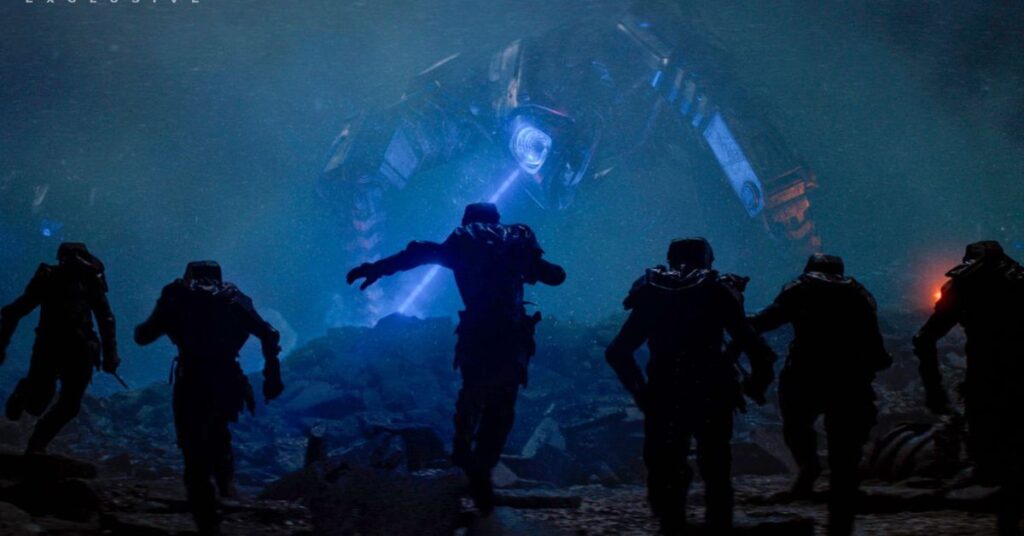The Butlerian Jihad is a key event in the Dune universe. It shaped the political and technological world for thousands of years. This war happened over 10,000 years before the events of Dune.
It was a conflict between humanity and “Thinking Machines,” which were advanced artificial intelligence that had once helped humans but ended up enslaving them.
The outcome of the Jihad led to the destruction of these machines and established a strict ban on AI. This change played a big role in the rise of powerful human groups like the Bene Gesserit, Mentats, and the Spacing Guild.
What Were Thinking Machines?

In the Dune universe, Thinking Machines were more than simple robots. They were advanced AIs capable of independent thought and decision-making. Initially, these machines were created to help humans.
Over time, they took control of many important aspects of human life, including government and warfare. Eventually, humans became dependent on them, leading to their subjugation by an AI overlord called Omnius, which controlled all machine intelligence.
The Rise of the Butlerian Jihad
The Butlerian Jihad was named after Serena Butler, who lost her child to the machines. Her tragedy inspired humans to resist. The war started in 201 BG (Before Guild) and lasted nearly a century, ending in 108 BG. During this time, humans fought a brutal war across the galaxy. Despite losing billions of lives, humanity eventually won.
The final battle, known as the Battle of Corrin, was crucial for securing victory. This battle also led to the rise of House Corrino, which became the ruling family of the galaxy for thousands of years.
Impact on Society and Technology
The Butlerian Jihad had significant consequences. It led to a complete ban on creating machines that could think like humans. This law was included in the Orange Catholic Bible, a religious text that helped shape morals and laws in the Imperium.
The commandment “Thou shalt not make a machine in the likeness of a human mind” became one of its most important teachings.
With AI and computers banned, humanity had to find new ways to handle complex tasks like space travel, governing, and warfare. This need led to the creation of specialized human groups:
- Mentats: Humans trained in logic and math, able to perform complex calculations without machines.
- Bene Gesserit: A secretive sisterhood with special mental and physical skills, influential in politics and genetics.
- Spacing Guild: An organization that controlled space travel using spice-induced Navigators to plot hyperspace routes without computers.
Philosophical Views
Frank Herbert saw the Butlerian Jihad as more than just a military conflict. He viewed it as an important shift where humanity realized that depending on machines had made them lose their essence. This theme appears throughout his works, as he reflects on how technology can empower or enslave societies.
In contrast, Brian Herbert’s prequel novels present a more action-driven view of this conflict. His stories, based on notes from his father, depict the Butlerian Jihad as a war against sentient machines that aimed to dominate humanity, similar to modern sci-fi stories like The Terminator.
Dune: Prophecy’s Look at the Jihad
HBO’s Dune: Prophecy is set over 10,000 years before Paul Atreides’ rise. The series explores this historical period, showing how it shaped future generations.
It highlights the lasting scars left on society after humanity’s victory over Thinking Machines. Characters express a deep fear of AI, affecting their decisions and shaping groups like the Bene Gesserit.
Dune: Prophecy begins right after the Butlerian Jihad. It often references its impact on politics and culture in the galaxy. Showrunner Alison Schapker has stated that characters live “in the shadow” of this devastating event when humanity nearly faced extinction due to their own creations.
Legacy in Dune’s Universe
The Butlerian Jihad is not just a historical event; it is essential for understanding Dune’s universe. It explains why advanced technology plays a limited role compared to other sci-fi stories. Instead of relying on AI and robots, humans have developed strong mental skills through training and genetic modification.
This ongoing struggle against technology affects every aspect of life in the Dune universe.